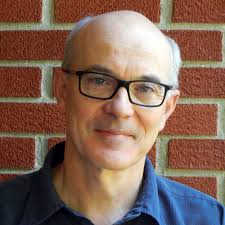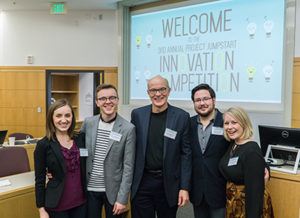I’m pretty much wowed, after spending a long weekend — last Friday to Monday — at the Jacobs School of Music at Indiana University.
Of course it’s a big place, so there’s a lot I missed. So of course this is just a partial impression.
But I was the guest of the school’s Office of Entrepreneurship and Career Development, and I’m confifdent that this functions wonderfully. From what I saw, and what I know elsewhere, it must be one of the top entrepreneurship programs at any conservatory.
Smoothing the way
 For one thing, Alain Barker, who heads it, is a dynamo, with very sharp ideas. He came to his job after (as he told me) 10 years as the school’s head of marketing and communications. To understand what an advantage it is, note that at many conservatories, the entrepreneurship program is to some extent dropped in from outside, with ideas and concerns that may be new to many on the faculty (and most of all to some of the most senior faculty members, the studio teachers, some of them famous, who teach voice and instruments).
For one thing, Alain Barker, who heads it, is a dynamo, with very sharp ideas. He came to his job after (as he told me) 10 years as the school’s head of marketing and communications. To understand what an advantage it is, note that at many conservatories, the entrepreneurship program is to some extent dropped in from outside, with ideas and concerns that may be new to many on the faculty (and most of all to some of the most senior faculty members, the studio teachers, some of them famous, who teach voice and instruments).
But at IU, the program hit the ground with someone in charge that everyone knew and liked. And who for 10 years had been looking out for their interests, making faculty members better known, giving them publicity. Of course that eased the transition. Gave so many people confidence in what the Office would do.
How it functions
Well, first — the Office has three full-time staff, counting Alain. And four students who actively run Project Jumpstart, in which students help students develop entrepreneurship initiatives. Among much else, they run an innovation competition, in which student projects compete for mentoring and financing. (Modest financing, but that makes sense, because entrepreneurs should find their own funding. I was a judge for this year’s competition; more on that later.)
That’s more staffing than most entrepreneurship programs I know of.
Of course the Office gives career counseling. Teaches business skills. Mentors projects. And, which I found notable, it makes students aware of ways they could work in music after they graduate. The Jacobs School, I learned, of course knows that many conservatory graduates don’t end up working in music, is concerned with the problem, has studied it (gathering extensive data on how its own graduates are doing). And is proud that a surprising percentage of their graduates are in fact musically employed.
One example I was given, which really struck me: People from some of the U.S. military bands came to the school. There are many military bands, which in effect give musicians fulltime work. They’re located around the country, not just in Washington, and by no means only play patriotic marches. They play challenging concert music, too.
Letting students know these exist is hardly a pathbreaking move, one that redefines classical music. But it’s important! Students need to find jobs when they graduate, and a program that works hard helping them proves its value to the school every day. Which then makes it easier to push far-reaching change.
So many good things
I could go on for a while about what the Office does. You can look at their website for more details. There’s a day each year devoted to the Office on campus. All prospective students who come to audition are told about the Office, and have a chance to meet with Office staff to find out what’s going on.
And one thing very much worth mentioning is a Certificate in Entrepreneurship, open to the most capable students, and — this is crucial — given jointly by the Office and by the Johnson Center for Entrepreneurship and Innovation at IU’s Kelley School of Business.
Certificate students take two courses at the Office, and three at the business school. To say that this is a major good thing would be an understatement, especially since the Johnson Center has been ranked (by US News and World Report) as the top entrepreneurship school in America.
Which turns out to be just one of the good things that happen because the Jacobs School doesn’t just stand on its own, but is part of a major university.
But this post is getting long. So I’ll continue all of this — including something on the talk I gave on the future of classical music — in another post.
Truly, I had a great time.

